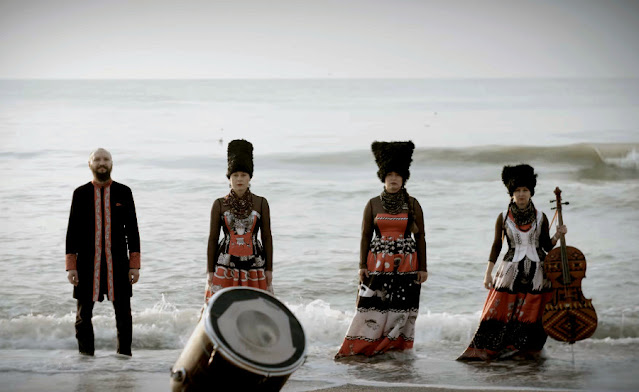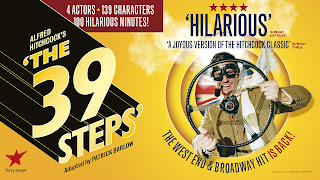Is theatre suffering under our current capitalist system?
I should perhaps preface this blog by stating what I consider to be our capitalist system. I wont go into details about how it works and the nuances between it and any other economic system but I will simply state that what our current system entails, that is putting profit first. That sometimes culminates putting profit before people, in terms of corporations like Amazon, or as I will now discuss putting profit before art and creative expression.
Perhaps the art form that is closest to my heart is that of theatre, in particular musicals. From initial inspection it appears that theatre has not suffered due to this need for profit. Indeed, both the West End and Broadway see new productions produced by new and exciting playwrights every year, whilst also playing more classical works. Indeed, perhaps the only cash grab that can be seen by the theatre industry in terms of the plays put on is through celebrity casting. Yet, we can hardly cast judgement over Benedict Cumberbatch playing the role of Hamlet given his classical training. However, I believe there is clear issue with the Musical scene. When we think of the musicals with the longest run on Broadway and the West End Les Mis and Phantom of the Opera come to mind, both having run since the 80's, we may also think of Wicked that has been on the West End for 20 years. All these musicals are based upon novels, two upon classic literature. Perhaps, novels that much of general population would otherwise not explore in their own time, due to how long it takes to read a novel (especially ones by Hugo). Therefore, most would see these musicals not because they already know in detail the subject for which it is based, but for the musical itself. This too goes for original musicals such as Book of Mormon. The fact that the subjects of these musicals are likely not already loved by the new musical goer means that the creators of the musical must produce near works of art. Music and scripts which resonate with people, to produce a love for the musical itself and produce new fans to exclaim how great the musical was, fans who rarely declare that the musical is simply good because of the original work its based on (if it is so) but because of the culmination of story and song.
Yet, many musicals that have been produced over the past few years no longer follow this formula. Indeed, in the past 3 years only 3 musicals which were based on an original concept were nominated for a Best Musical Tony award , in comparison to the 8 other musicals which were either based on a movie or was a musical biopic. Basing a musical on a movie or a musician is vastly different to basing it on a book. For example whilst most would not have read Les Mis, most would have seen Mean Girls, whilst many would not have read Phantom of the Opera there would be many who are fans of Tina Turner or many who at least know some of her music well. Therefore, it seems that many who go to see these newer musicals do not do so for the musical itself but because they are already at least somewhat of a fan of the movie or person for who it is based on. This therefore means that the musical already has an audience before it is even written. As such producers are more likely choose those musicals which will have a guaranteed audience over ones based on books or original concepts, for which an audience base is far more uncertain. We can therefore point to this as a way the musical art form is dying under our capitalist structure as a wide variety of musicals with original or old concepts (such as those based on books) are no longer being produced on Broadway. Instead we are left with a smaller variety of musicals with a repeated concept as musicals based on movies provide a greater deal of security in terms of making a profit.
Furthermore, as these musicals have guaranteed audiences many (not all) simply rely on the fact that the basis of their show is already famed and therefore put little effort into reworking the source material into a musical format. Indeed, many of the shows based off of a movie will change very little about the original story, perhaps adding in a few additional scenes to fill out runtime, as the initial story has already accumulated enough of a fanbase (so what's there to change). Therefore, in terms of storytelling many of the musicals based on movies are no more creative and artistic than when Disney produced an almost word for word live-action remake of the Lion King. This indicates the disparity between the creativity and artistic form needed to produce some of these movie based musicals and those musicals which were original concepts or based on books. As the latter requires a far greater degree of artistic endeavour to make original concepts or 'old-fashioned' books translatable to the stage and entertaining for modern audiences. Indeed, as movie based musicals already have a story that is widely loved and are put first by produces due to being instantly profitable, we are left without creative forms of storytelling in our shows.
Furthermore, the music itself in many of these biopic musicals or movie musicals are far more creatively bankrupt. Indeed these musicals are mostly a compilation of pre existing songs (jukebox musical) or feature songs which are poorly written. Whilst it makes sense for biopic musicals to have songs by the artists they are telling the story of it also highlights the lack of creativity needed to produce these shows. Whilst the biopic creators may spend time arranging the harmonies in certain songs much of their work is already done by the original musician, unlike those who produce their own music and may spend over a decade mastering their musical arrangements and producing the perfect lyrics. Furthermore, even when original songs are produced for movie based musicals the songs are often poorly written, with lackluster orchestration and rushed lyrics (rhyming 'nice' with 'not nice' for example). This can be seen as occurring as there is less of a requirement to produce great music in these musicals as the creators already know the show will sell on the bases of its IP (Mean Girls) rather than the mastery of its music (a selling point for Les Mis). Therefore, the fact that many musicals are now created on the back of an already successful movie or celebrity means that less effort and creativity is placed in the shows music, whether to push the musical out quicker or because tickets will sell without the need for good music. Thus, highlighting how placing profit first and only producing musicals which will instantly sell due to their IP, greatly hinders the art form.
Additionally, by producing musicals based on already famed and popular IPs but putting little effort into producing a creative musical in itself, on the basis that the show will simply sell because everyone already loves the IP for which it was based, creates a dangerous situation for musicals in general. Indeed, whilst tickets for shows like Mean Girls or Frozen do sell for the first couple of years they are soon met with closure. This is because whilst people are fans of these movies the musical becomes more of a novel extension of the movie itself rather than its own wonderful thing. Indeed, many who go to see these shows will not see it again and will likely not even rave about it to a friend because it was simply 'alright' and nothing more special than the movie itself. This could be placed down to the lack of creativity placed into these musicals, they are not their own thing separate from the movie as the script is a near carbon copy and the music (or additional music) is often weak. Therefore whilst these movie based musicals do make profit for the producers they often have little more than two years of life on Broadway before closing. Indeed, despite 6 of the last tony nominated musicals being based on movies only one of them survives on Broadway (the newest of the 6). And only the Lion King (extremely creative in its own right) and Aladdin (despite closing on the West End) have been running for more than a decade. As such the need to make profit from a musical the easiest and safest way possible, by producing a musical which has a large pre-existing fanbase, ultimately helps to destroy the performing landscape, by having shows which take up space and close after two years. This not only means that there is less space for far more creative and artistic shows but it also presents a turbulent landscape for actors and creatives in general who will constantly have to be prepared for their show not to last much more than a year.
Indeed, all these issues are caused by producers wanting to make profit, a symptom of our current capitalist system which places profit first. As such due to our current capitalist system we are losing the creativity at the centre of our theatre industry as many musicals turn from an explorative art form to a cash grab with little substance.





Comments
Post a Comment